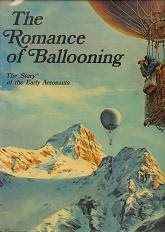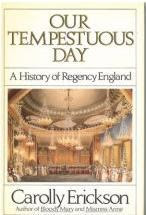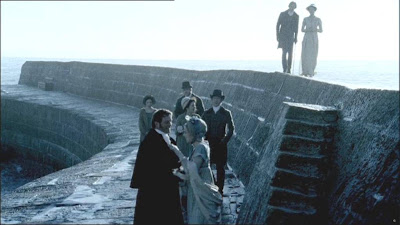Elena blogged about the Cassie Edwards situation earlier this week; the whole kerfuffle came to light because of the internet: The Smart Bitches discussed their opinion of Ms. Edwards’ body of work, someone wondered just why it was the way it was, they did some googling, and voila, accusations of plagiarism ensue. It seems quite clear that it would not have happened without the internet. Who would have found those old books and compared them if it meant hours and hours in dusty libraries?
Your opinion of what Ms. Edwards may or may not have done aside, I think this situation, this possibility, is a good thing–transparency of information is fabulous, whether I’m searching for a butternut squash recipe, or want to see 1814 walking gowns, or a Biblical quote for my vicar’s daughter to spout during an argument with the hero.
The internet is also an incredible word-of-mouth vessel. For example, a blog-friend, Kristie, has been on a Crusade to get people to watch the BBC version of Elizabeth Gaskell‘s North & South. I had heard of it from an offline writing friend, but hadn’t gotten around to watching it, especially since my local library didn’t have it. Thanks to Kristie, who lit a fire under my posterior, I got it from the New York Public Library and watched it this week.
I have to say, thank goodness for the internet. I wouldn’t have known about the splendor of North & South, and the compellingly dark charisma of the hero, played by Richard Armitage, without it. Any fan of romance, and history, and alpha-sexy Mr. Broody-Pants-type heroes should try to see it.
In other ‘What has the Internet Done For Me?’ testify stories, my husband and I are renovating a house right now (fingers crossed: March 1), and we’ve done TONS of research on the web: Paints, stoves, refrigerators, lighting, building codes, etc. Would we even have a clue about anything without it? Unlikely. Not unless we wanted to spend tons of money on reference books or loads of hours in that same dusty libraries.
I find recommendations for books, food, movies, foxy guys, connect with friends, meet new friends (hi, Kristie! hi, Cindy!), introduce myself and my writing to potential readers, and have made some lasting connections that have escalated beyond the keyboard (hi, Myretta! hi, Tracy!).
And, of course, without the Internet we wouldn’t all be gathered here, sharing a love of Regency romances.
What do you love most about the web?











